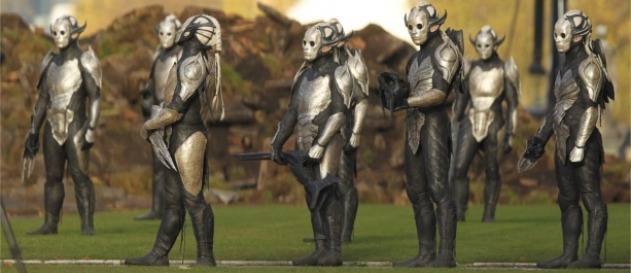
Is there "real" science in Thor: The Dark World? While it is too much to expect the average several hundred million dollar studio abortion to care to get the facts straight when it comes to the laws of physics, the film's focus on a mysterious "Aether" (a concept hotly debated in Einstein's day) energy that a pack of mean elves want to harness so as to return the universe to a light-less state before creation certainly smacks of at least a passing acquaintance with bleeding edge scientific thinking (sans mad elves, of course). Let us also not forget that Thor's love interest Jane Foster is an astrophysicist, perhaps less significant to the plot than the times: back when Jane was created in 1962, she was a nurse.
In other notable "dark" news, the Neil deGrasse Tyson-narrated space show Dark Universe premiered at the American Museum of Natural History's Hayden Planetarium this week. I'm planning a trip up there in the coming days and will report back. The documentary teaser is intriguing, but less for the glimpses of beautifully spongy CGI space renderings, than the underlying concept behind the piece: instead of a celebration of what we have learned about the universe (things we know already being the usual provenance of museums), the film is directly focused on all that we have yet to know, including that twenty-five percent of it that we believe to be made up of matter that can't be directly observed.
The enduring allure of the "dark" in popular culture was ably diagrammed by Eric Hynes a few years back in Slate. Given the 229 million google search results currently extant for "dark matter," perhaps the interrelationship of the "pop" darkness with the one eagerly sought by scientists is worth a further look. As we get closer and closer to seeing and defining dark matter and dark energy, it seems only reasonable to expect more films probing the wilder corners of physics. Can a reboot of The Adventures of Buckaroo Banzai be far off?